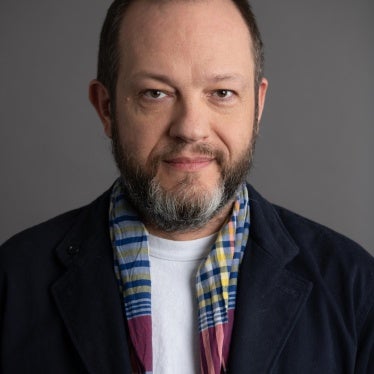"[T]housands of men executed and buried in mass graves, hundreds of men buried alive, men and women mutilated and slaughtered, children killed before their mothers’ eyes, a grandfather forced to eat the liver of his own grandson. These are truly scenes from hell, written on the darkest pages of human history."
Those are the words of a judge in The Hague in November 1995 confirming the indictment for genocide in and around Srebrenica against the Bosnian Serb wartime leader Radovan Karadzic and the wartime commander Ratko Mladic before the International Criminal Tribunal for the former Yugoslavia.
This month marks the twentieth anniversary of the slaughter of more than 7,000 Muslim men and boys from the Srebrenica area by Bosnian Serb Forces. It is a moment to reflect on the worst crime on European soil since the Second World War, and to examine whether Martin Luther King’s maxim that the moral arc of the universe bends towards justice holds true.
It is remarkable that Karadzic and Mladic were indicted when they were. The atrocities were only months old and peace negotiations were under way to bring to an end to the devastating conflict in Bosnia and Herzegovina. The fighting had raged for more than three years, costing more than 100,000 lives and introducing the world to the chilling concept of “ethnic cleansing.”
Pursing those most responsible for the worst crimes is often seen as inconvenient. The Srebrenica indictments were no exception. When they were first issued, many politicians and diplomats cried foul, claiming justice would get in the way of peace. Yet the war ended the following month with the conclusion of the Dayton peace accords, in part because Mladic and Karadzic were excluded from the negotiating table.
Both men went deep underground, and for years many assumed they would elude justice. Despite their best efforts, Mladic and Karazdic are now both in custody in The Hague and on trial, in large part because of pressure by the European Union on Serbia to hand them over.
The accomplishments of the tribunal in bringing justice for Srebrenica do not end there. The court has convicted 14 people for crimes committed at Srebrenica. In January, the court affirmed the genocide convictions for two senior members of the Bosnian Serb forces, Vujadin Popović, and Ljubiša Beara, plus three others for related crimes. In 2001, the court convicted Radislav Krstic, who commanded the forces responsible for the killings in July 1995, the first time it had convicted anyone on genocide charges for Srebrenica.
But important as the efforts of the tribunal are, they are by necessity incomplete. The task of delivering justice for the crimes of Srebrenica, especially for those directly responsible and for mid-level commanders, falls to the courts in Bosnia and Herzegovina, especially the State Court, which has primary responsibility for trying war crimes in the country and has concluded more than 250 cases in the past decade.
But the authorities in Bosnia and Herzegovina have been slow in implementing a national war crimes strategy designed to focus efforts on the most serious cases, with efforts hampered by insufficient capacity and funding, particularly at the district and cantonal level. Some senior officials have impeded efforts toward justice and openly question the legitimacy of the State Court and the Prosecutor’s Office. If Bosnia and Herzegovina is serious about its bid to join the European Union, it needs to step up its efforts to address the case backlog and bring war criminals to justice.
The road to international justice is long and often winding. Last month’s thwarted efforts to arrest President Omar al-Bashir of Sudan in South Africa, wanted by the International Criminal Court for genocide, among other charges, is only the latest example. But the experience of Mladic and Karadzic shows that concerted, consistent international pressure can produce results. Achieving accountability may be difficult but its pursuit should be non-negotiable.
“N.P” a sixty-five year old man who survived the Srebrenica genocide spoke to Human Rights Watch in August 1995.
There were twelve of us in the small truck. ..My cousin Haris called for me. When we jumped out we were directed to go left. I saw grass underneath the blindfold. Haris took my hand. He said, “They’re going to execute us.” As soon as he said that, I heard gunfire from the right side. Haris was hit and fell towards me, and I fell with him. I heard moaning from people who were just about to die, and suddenly Haris’s body went limp.
To honor Haris and all those who died in the Srebrenica genocide, Bosnia and Herzegovina’s international partners, especially the US and European Union, should support accountability efforts in Bosnia, both at the State Court and in local courts. And they should give the International Criminal Court the backing it needs to succeed.








